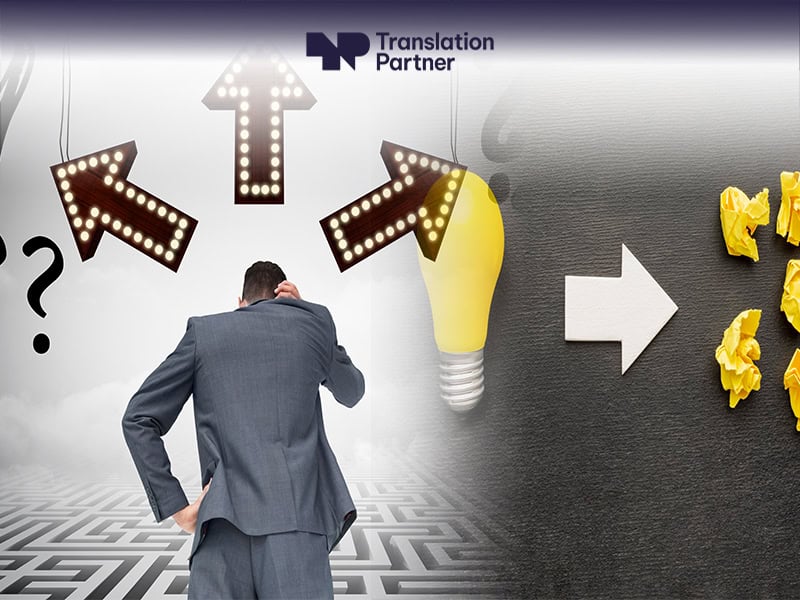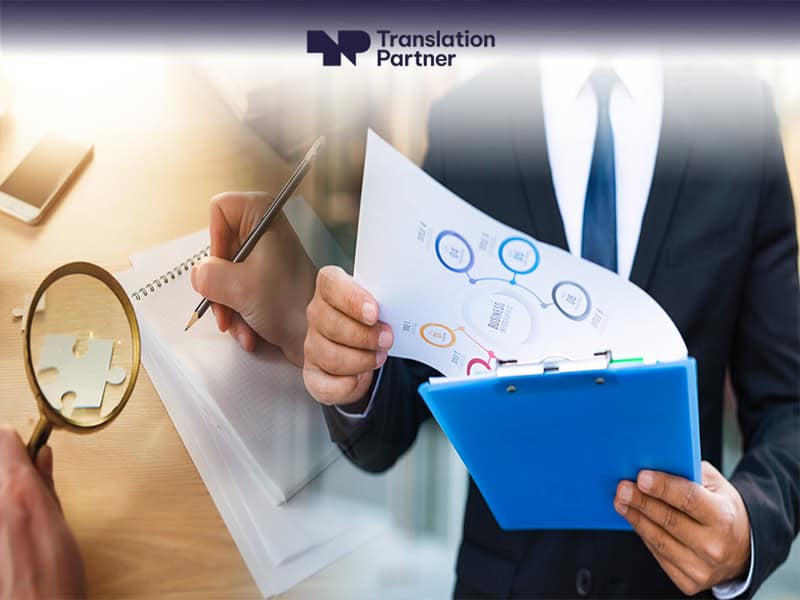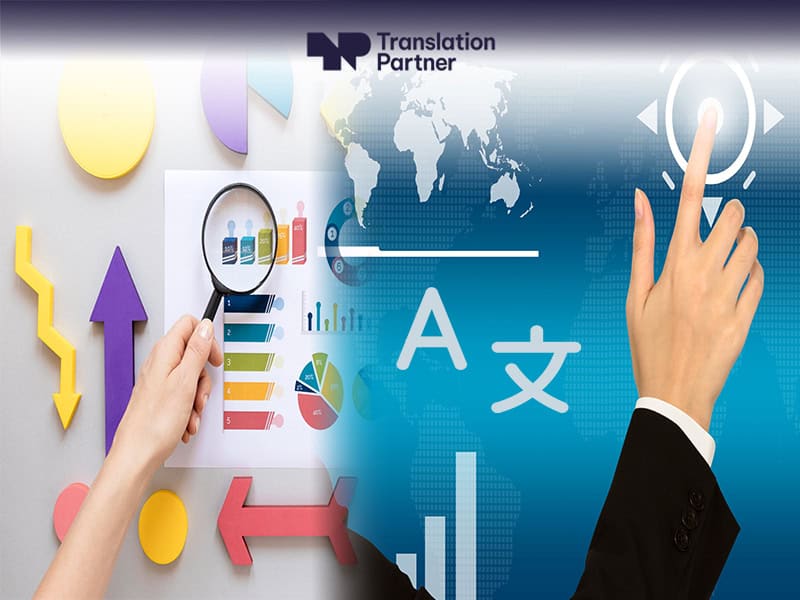When you ask anyone about how quality translation should be! Accuracy is always the answer!
Accuracy means the translation is an authentic copy of the source, but in another language.
When we talk about accuracy, it doesn’t mean a word-for-word translation; it means keeping the same meaning with precision.
To ensure accuracy, you should seek a top-notch translation agency that provides quality and precision by skilled translators. Therefore, Translation Partner wisely chooses professional translators and linguists to get accurate and quality translations.
Key Factors Influencing Translation Accuracy!
You may still wonder about the key factors that influence translation accuracy. Let’s explore and summarize them in a few points:
Preserving the Meaning
Each language has its own different structures, idioms, and rules. Therefore, to produce an accurate translation, the skilled translator should have a deep understanding of the linguistic differences to preserve the intent and meaning using clear and precise language.
Cultural Sensitivity
In addition to keeping the meaning and intent, accuracy requires cultural sensitivity. In more specific words, each culture has its nuances, and when translating from one language to another, you should respect cultural nuances using acceptable expressions that reflect each culture’s soul.
As an example, a comic phrase in a specific language may be offensive in another. Cultural sensitivity keeps the meaning with the right emotional tone and cultural context. Therefore, a professional translator should ensure that the translation is both linguistically correct and culturally appropriate.
Contextual Considerations

Contextual considerations are the best way to distinguish a professional translator from another. Accurate and quality translation respects contextual consideration; literal translation of technical jargon and idioms ruins the entire translation.
Legal expressions, medical terms, and technical words vary from one language to another. A skilled translator is a professional who decodes the complexity of each term and deeply understands the details to produce an accurate and consistent translation.
Consequences of Translation Inaccuracies
Inaccuracies are not just a word but include a fatal disaster if they occur. In other words, the consequences of translation inaccuracies are severe and may lead to complicated issues. Let’s take a closer look at those consequences to imagine how important accuracy is.
Miscommunications
Languages are tools for communicating, and they are complex and require a deep understanding to easily reach people’s minds with clear wording.
Inaccuracies lead to miscommunication and may destroy countries’ political relations or even personal relations. A mistranslation of a diplomatic meeting may cause a war, while a mistranslation of a meeting between individuals will lead to conflicts. And the translation, instead of being a language bridge and breaking barriers between cultures, will be a communication disaster.
Financial Losses and Legal Issues
In business and financial sectors, if inaccuracies are dominant, this means financial losses and business damage. Mistakes in translation or bad translations in legal materials or business papers will lead to severe consequences, such as disputes, contractual obligations, penalty clauses, and more. The cost of a poor translation will be beyond expectation, therefore, you should invest in accurate and quality translation to avoid all that.
Lack of Credibility and Bad Reputation
Each individual, business, and even country always builds a good reputation and invests more to keep this reputation. In case a company wants to expand internationally, a bad translation for marketing materials that convey culturally improper messages or include grave errors will ruin the business before it begins.
Inaccuracies in political conferences or legal issues will be fatal. Reputation will be damaged, and it will extend to long-term losses in businesses and relationships. In addition, rebuilding credibility and a good reputation will be far beyond reach.
The Importance of Meticulous Assessment

Meticulous assessment of translation is crucial in ensuring quality and accurate translation. It helps every individual and business to gain success internationally; in addition, translation assessment preserves accuracy and facilitates global communications. Precision and accuracy mean that you can hold the world in your hands.
Quality Assurance Practices in Translation
Translation accuracy is a group of processes that ensure a better outcome. Quality assurance is the leading factor in ensuring translation quality with accuracy and precision. Let’s list the key steps to quality assurance practices in translation.
Different Strategies for Ensuring Accuracy
The first step is translation, the second is revision, and then linguistic editing to check grammatical and style errors. These simple steps ensure error-free translation service, accuracy, readability, and legal acceptance.
In addition, staying updated with new terminologies and the translation industry’s technologies is essential for keeping accurate and quality translations. Every day, new terms, trends, or expressions are added to the language glossaries, and each skilled translator should be aware of them and improve their skills to ensure accurate translation. Furthermore, the translation industry is in continuous evaluation, and each professional translator should learn how to use the new translation tools to improve quality and accuracy.
Encouraging Collaboration Between Translators and Content Creators
Collaboration between translators and content creators is a must to ensure a premium translation service. Translators are language experts who identify possible ambiguities, cultural sensitivities, and difficult terms. They can help content creators improve original material that is easy to translate and reaches the target audience.
Metrics for Measuring Translation Accuracy

Translation Accuracy is vital for error-free and quality translated documents. Metrics for measuring translation quality are effective to ensure premium service.
Ongoing Translation Evaluation
Human evaluation is the first process that ensures accuracy and quality through various techniques, such as evaluating the accuracy rate and how clear the translated document is; minor, major, or critical errors. In addition, human evaluators check general style, consistency, omission, or addition of translation and localization issues.
Then, it is the turn of the technology solution to assess the translation accuracy, consistency, and prevent any potential errors by identifying repeatedly issues and implementing corrective actions.
Customer Feedback and Satisfaction
To ensure ultimate accuracy, target audience feedback is a clever strategy. In other words, communicating with the target audience professionals who can assess the translation in both linguistic skills and cultural context. Another is customer satisfaction, depending on customer reviews and scores; this method doesn’t evaluate the translation accuracy, but it reveals several issues in translation.

